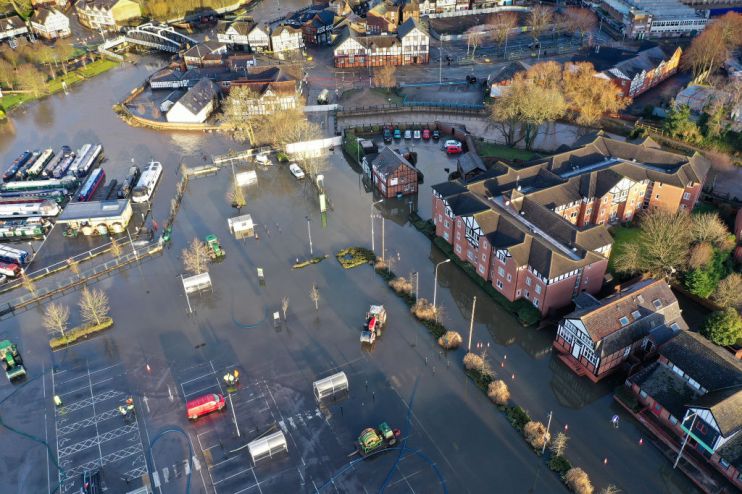Compensation cap for severe weather power loss upped from £700 to £2,000 as ‘lessons learned’ by Ofgem

The compensation cap for households and businesses that lose power in severe weather has increased from £700 to £2,000 after “lessons learnt” in the aftermath of Storm Arwen.
Under Ofgem’s new rules, the initial payment will also increase, from £70 to £80, if a customer’s supply is not restored after 24 hours in a category one storm or 48 hours in a category two storm.
A storm’s category is defined based on the impact it has on the electricity network, with a Category 1 storm causing between eight and twelve times the daily average number of faults in a 24-hour period, and a category 2 storm causing more than twelve times the daily average number of faults.
Furthermore, Ofgem has cut the length of the time consumers have to wait for additional compensation from 12 hours to six hours after the initial payment period.
For both storm categories, customers are entitled to a further £40 for every six hours they are without power after the initial 24-hour or 48-hour period.
Updated regulations will allow for all compensation payments to be made by bank transfer to simplify and speed up the process, and a new adjustment mechanism will mean payments remain in line with inflation.
Ofgem’s new rules follow the regulator’s review into the response to Storm Arwen by distribution network operators (DNOs) – the companies responsible for linking homes and businesses to the electricity network in Great Britain.
Network companies that fail to follow the rules could face multi-million-pound fines.
Storm Arwen saw nearly one million homes and businesses lose power in November 2021, with 40,000 consumers cut off for three days and almost 4,000 having to cope without power for over a week in parts of north England and north-east Scotland.
Akshay Kaul, Ofgem’s director general of infrastructure, said: “It’s unacceptable that thousands of households were left without power in freezing conditions for a prolonged period during Storm Arwen, often with poor information about when their power would be restored.
“Many also found it hard to get the compensation they were entitled to afterwards, and that’s why we’ve put tough new rules in place to make sure network companies prepare better for severe weather; customers get accurate and honest information about power cuts in their area; and those who are off power in bad weather are rapidly and fairly compensated.
“Lessons have been learnt by the industry following our review into Storm Arwen, but the frequency of extreme weather events is only set to increase, so we need to make sure network services are resilient.
“Network operators and suppliers should get ready for the coming winter. We will not hesitate to hold them to account if they fall short of the standards customers have a right to expect.”
Lawrence Slade, chief executive of the Energy Networks Association (ENA), which represents the UK’s energy network operators, said: “Storm Arwen caused catastrophic damage and disruption to customers, which network operators immediately recognised by voluntarily lifting the cap on compensation following the storm.
“Today’s formal recognition that compensation should be higher reflects the disruption and inconvenience customers experience. Network operators continue to work hard with the regulator and government to make processes like claiming compensation more straight forward and fully implementing recommendations to enhance our customer services during extreme weather events.
“Network operators have also identified areas which will need increased investment to provide better energy security and service for customers in the long term. This is particularly important as severe weather events unfortunately become more frequent. We continue to apply lessons from Storm Arwen to ensure the UK’s energy networks are ready to respond to severe weather events and support customers in the most effective way possible.”
PA – Josie Clarke
